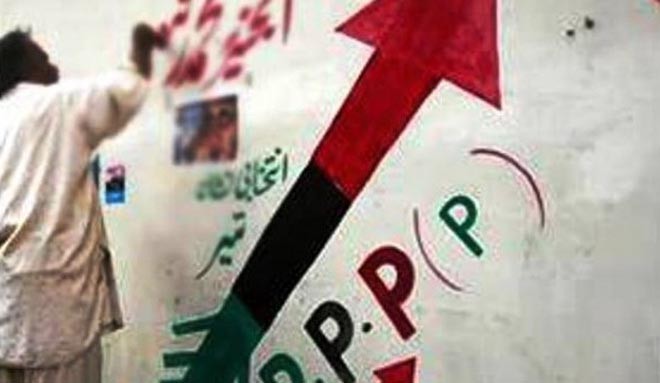

A jiyala is distinct from an ordinary political creature. He is untouched by the scheming mind of a political opportunist and defies the superficial analysis of an armchair critic. Even today, while a lot seems to have changed in the rules of the political game, he is not bothered and is loyal only to the slogan of his party and what he regards as the original leadership of PPP of yester years.
But that is not to say that he is content with whatever is going around, especially in his own party. The jiyala is somewhat disillusioned with his leadership and many of them say it openly. To some jiyalas, this is a story of a gradual but continuous detachment of the hardcore party worker from the top party leadership. He laments how the party’s leadership, in his view, started ignoring the worker at the grassroot level and how, in turn, the worker felt dejected and distanced himself from the party leadership over the years.
Does the party need me anymore? The older lot of jiyalas, for instance, sees this question in the backdrop of the heydays of their political activism in the 1970s and 80s.
One such jiyala is Ziaul Haq, a Lahore-based office holder of Pakistan People’s Party in the 1970s. Now in his 70s, a resident of Mozang area, he recalls the prime of his days in politics -- "Bhutto remained in contact with not just the notables of the society but also with the worker of the party in a street. When he would come to Lahore and stay at the Faletti’s, he would make it a point to visit our party office at 4-A Mozang Road and meet us. He would call us by our names. For example, he would know that Hara Sain, a worker who rode a donkey cart at Mozang Road, was ill and asked somebody in the party to look after him."
Haq sees a gradual weakness in the leadership’s attachment and contact with the jiyala. "After Bhutto, Benazir tried her best to carry on the legacy of her father but, being a woman, she had to face certain difficulties," he says.
Haq is not alone in showing his dissatisfaction with the party leadership. Iffat Imam, a senior supporter of the PPP, says a true jiyala seems to have no place in the party these days.
She talks about "a selfless PPP worker, Qayyum Nizami," a prominent leader from Samanabad, Lahore, who was ignored by the party leadership after Benazir Bhutto first came to Pakistan in 1986. "He had made great sacrifices for the party during the martial law days but when the party came in power in 1988 he was not even contacted by the party leaders. That was insulting," she says.
Imam says that attitude of the party leadership and their advisors has travelled down to the present day, "Just before the 2013 elections, we as party workers conducted a survey in the Ghausia Colony in Lahore, an area of PPP supporters traditionally, and found that 78 per cent of the PPP voters there said they would vote for Imran Khan in the upcoming elections. That shows where the present day jiyala has converted to," she says.
The disconnect between the party worker and the PPP top leadership seems to be obvious "The disconnect between the jiyala and the party is becoming wider," says Sajida Mir, a prominent worker of the PPP based in Lahore. "Today, if we email to PPP co-Chairperson Asif Zardari or Faryal Talpur, or any other top leader for that matter, we get no reply."
She adds, the party should have campaigned in the 2013 elections. The jiyalas were waiting for the call despite terrorist threats," she says. Mir criticises the present leadership, "Today, it’s a party of flatterers, held loosely together by video-linked conferences. We hate the corrupt ministers but not the party."
Senior leaders, however, refuse to accept that jiyalas have been abandoned by the party. "The PPP is perhaps the only political party that has seen its workers becoming MNAs, MPA, Senators, and holding important government offices," says Moula Bakhsh Chandio, Senator from Sindh and PPP Vice President in Sindh, adding, "That is because the spirit of jiyala has not died down in Sindh, or Punjab, or any other province for that matter."
Dr Hasan Askari Rizvi, a senior political analyst agrees with Chandio when he says that, "The number of jiyalas may have reduced over time but the concept of jiyala still exists."
He also agrees that the contours of politics have undergone a drastic change, "It is not easy for a jiyala of, say, the 1970s to understand why Manzoor Ahmed Wattoo, for instance, is heading PPP Punjab," he says, adding, "the leadership of the present PPP, especially in Punjab, has not been able to mobilise the jiyala."
Rizvi believes long periods of PPP leaders’ absence from the country have also contributed to the alienation of the worker from the leadership. "In addition to it, in the presence of widespread religious conservatism, especially in Punjab, the PPP was not able to give an alternative ideological discourse to the masses, especially the younger lot of the jiyalas."